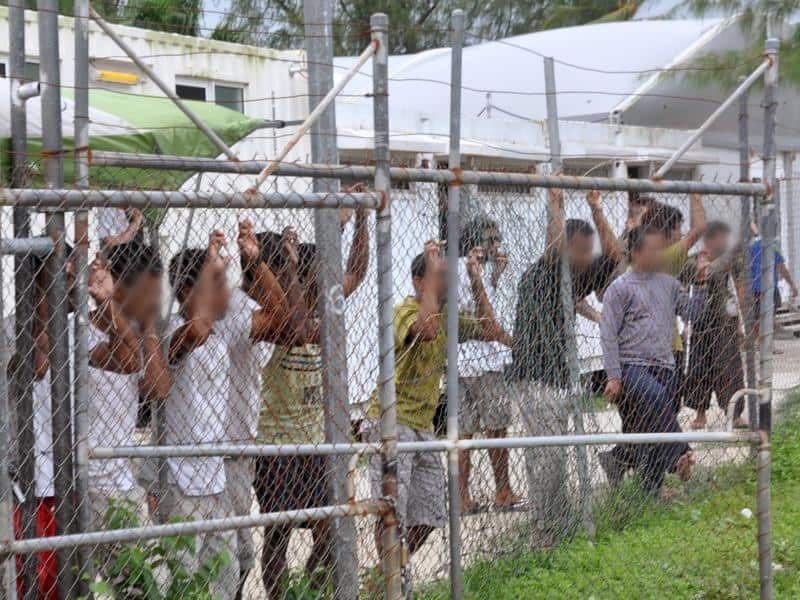Asylum seekers detained in offshore and onshore processing centres are particularly vulnerable to self-harm, compared to those in community-based arrangements and community detention, a new report from the University of Melbourne has found.
According to the report, there were 949 incidents of self-harm involving asylum seekers recorded between August 2014 and July 2015.
In particular, 260 of 1,000 asylum seekers on Nauru exhibited signs of self-harm and 54 of 1,000 people detained on Manus Island.
257 of 1,000 people in onshore detention suffered from self-harm in that period - compared with five people out of 1,000 in community-based arrangements and 27 people out of 1,000 in community detention.
The most common methods of self-harm were cutting (37 per cent) followed by self-battery (26 per cent).
Lead author, Kyli Hedrick said that while these rates are already very high, she believed the actual rates could be even higher.
"It is very likely these numbers are under-reported," she said.
"Inconsistent reporting processes, especially in offshore detention are contributing factors as to why." Ian Rintoul from Refugee Action Coalition said the high self-harm rates were unsurprising.
Ian Rintoul from Refugee Action Coalition said the high self-harm rates were unsurprising.

A group of asylum seekers behind a fence at a compound in PNG. Source: AAP
“It is unfortunately not a surprise and it backs up what we know anecdotally," he said.
"We know that the level of self-harm in offshore, in particular, is horrendous and anyone who is familiar with onshore knows it happens far too often there as well.
“It is, however, good to have the hard evidence, it makes it much more difficult for governments to ignore.”
Mr Hedrick hopes the report will encourage policymakers to consider community-based arrangements for asylum seekers instead.
“Compared to rates observed in the general Australian community, and among asylum seekers in community-based settings, our research shows detained asylum seekers are at most risk,” she said.
“This highlights the urgent need for community-based processing to be implemented to help reduce the causes of distress and self-harm associated with detention settings.
Readers seeking support can contact Lifeline crisis support on 13 11 14, Suicide Call Back Service on 1300 659 467 and Kids Helpline on 1800 55 1800 (for young people aged 5 to 25). More information is available at Beyond Blue.org.au and lifeline.org.au.
Share



